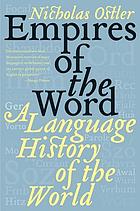preparations for 30 October session

Read these
Ostler, N. (2006). Empires of the word: A language history of the world . New York: Harper Perennial.
-
Usurpers of Greatness: Spanish in the New World
pp. 331-379
Kamen, H. (2003). Empire: How Spain became a world power, 1492-1763. New York: HarperCollins.
- pages 487-512, but focus on pages 494 to the bottom of 506.
Read the Master of Management and Information Processing page on the Pontificia Universidad Católica de Chile website to acquaint yourself with an analogous program.
Think about these issues
Spanish never made widespread or deep-seated progress in the Phillipines, and despite over three centuries of presence was soon displaced by English in the early twentieth century. It will be interesting to ponder the roots of the difference with Spanish in the Americas, where despite US economic dominance Spanish is still growing at the expense of English.
Yes, indeed. Let us "ponder the roots of the difference with Spanish in the Americas."
... when a population starts to move towards that irresistable attractor, the US economy, as the Mexican and central Caribbean populations now are, new speaker communities will begin to crowd in, even if this means encroaching on the heartland of the most dynamic, and widely spoken, language in the world, English.
Does this worry you Anglophones? Should Anglophones be worried? Will they have to change themselves at all?
The scribes used by the inquisitors were ignorant of Latin, so that all other languages had to be translated into Castilian, with the corresponding danger (as the Catalan authorities pointed out) of distortion of meaning. An imperial power in this way found itself unable to communicate with or understand the peoples of the empire, save through the mediation of interpreters. This created an enormous and insuperable obstacle.
Is this not a fact of life today, in other circumstances? How can this communications gap be overcome?

